TL;DR: Dark psychology explores how traits like manipulation affect us all. It highlights the importance of recognising these aspects within ourselves to improve personal ethics and relationships. By embracing and managing our darker sides, we can build a more understanding society.
Dark psychology is a term that explores the more sinister side of human behaviour and thought. It often involves understanding how and why individuals engage in manipulative, deceptive, or harmful actions towards others. Understanding dark psychology isn’t just about recognising the potential for maliciousness in others; it’s about gaining a deeper understanding of ourselves and the complex interplay of forces that shape human behaviour.

Jennifer Pan’s case is a stark reminder of the darker facets of human psychology. Raised in Ontario, Canada, by strict Vietnamese immigrant parents, Jennifer lived under intense pressure to excel academically and professionally. As expectations mounted, she constructed an elaborate web of lies, claiming achievements she never reached and even faking her way through college. When her deceit began to unravel, rather than confronting the truth, Jennifer took a drastic and dark turn. In 2010, She hired hitmen to kill her parents in what she staged as a home invasion, resulting in her mother’s death and her father’s severe injury. Her actions, driven by desperation and the inability to meet her parents’ high standards, highlight the extreme lengths to which psychological stress and fear of failure can push someone. The meticulous planning of her crime shows a calculated Machiavellian approach to achieving her objective — the freedom from her parents’ control, as twisted as her method was. And the ability to plan and carry out such a grave act as the murder of one’s own parents indicates an extreme level of emotional and psychological detachment.

Or take the shocking murder of 3 Body Problem’s Billionaire producer, Lin Qi who fell victim to a sinister act of poisoning by Xu Yao, a lawyer who was hired in 2017 to head up one of the company’s subsidiary. The Chinese billionaire began experiencing symptoms that were traced back to poisoning in December 2020, was hospitalised and tragically passed away on Christmas day. Sidelined at work, Mr. Xu reportedly exacted vengeance with meticulous planning, including experimenting with hundreds of poisons he bought off the dark web, testing them on small animals in a makeshift lab. This case highlights a disregard for moral boundaries and a focus on personal gain over human life. It was a display of narcissism — from the extreme lengths he went to assert control and influence within the company, his actions driven by an inflated sense of self-importance and how his desires overshadowed the collective good and ethical considerations.
Both of these cases illustrate how dark psychological traits can escalate into lethal actions. In Jennifer Pan’s case, dark psychological traits were activated by personal distress and familial dysfunction. It illustrates the severe consequences when individuals feel cornered and see no way out of their psychological pain, except through drastic actions. Mr. Xu’s case highlighted the extreme measures that individual might resort to in high-stakes business disputes. It provides a grim example of dark psychology in action, where ambition, betrayal, and the darker aspects of competitive business practices can culminate in tragic outcomes.
Understanding the darker side of our mind helps demystify behaviours that are often simply dismissed as ‘evil’ or ‘malicious’. It allows us to approach human behaviour with a more nuanced perspective that promotes empathy and understanding even in situations where we confront the worst of actions. The purpose of understanding isn’t to excuse harmful behaviours but rather informs a more compassionate response, recognising that such traits and actions often stem from complex underlying psychological pressures.
In this piece, we’ll uncover how dark psychology manifests in everyday life, how it’s been studied through history, and how it continues to influence our interactions in the modern world. By confronting our very own shadows, we not only enhance our understanding of the human condition, but also empower ourselves to lead more conscious, considered lives.
Different Interpretations of the “Dark Side”
Each era contributes layers to our understanding of the darker aspects of the soul, reflecting changing beliefs about human nature and morality. The evolution shows a dynamic interplay between philosophical, theological, and scientific perspectives — continually shaping our understanding of good and evil within us.
Buddhist Philosophy (500 BCE)
Buddha identified three roots of evil or “poisons” that are the source of all human suffering. These are greed, hatred, and delusion. Greed encompasses selfish desire and lust for possessions, sensations, or experiences. Hatred includes all forms of aversion, anger, and hostility towards others and oneself. Delusion refers to the fundamental misunderstanding of the nature of reality — our tendency to perceive stability and continuity in things that are actually transient and subject to change and seeking happiness in material or sensual pleasures that ultimately cannot provide lasting satisfaction.
Ancient Greek Philosophy (400 BCE)
The Greeks were profoundly interested in the nature of the psyche, or soul. Plato introduced the idea of the tripartite soul in his work “The Republic”. He described the soul as having three parts: the rational, the spirited, and the appetitive. Plato believed that moral behaviour resulted from a balance between these parts, but when the appetitive (desire-driven) part of the soul overwhelmed the rational, it leads to vice and moral corruption. His student, Aristotle, further explored these concepts, suggesting that virtue lies in finding the balance between excess and deficiency of traits, recognising that we all possess the potential for both good and evil.
Christian Theology (Middle Ages 400AD)
During the Middle Ages, Christian theology significantly shaped Western ideas about the soul’s darker aspects. The concept of ‘original sin’ introduced by Augustine argued that humanity is inherently sinful due to the Fall of Man (aka ‘Adam’ who disobeyed God in eating the forbidden fruit, thus passing his sin to all his descendants). This period also emphasised the battle between the virtues (inspired by the Holy Spirit) and the vices (influences of the devil). The Seven Deadly Sins framed a moral understanding of the dark impulses as part of human nature that must be resisted through spiritual discipline and confession.
Renaissance Humanism (16th Century)
The Renaissance brought a shift back to a more human-centered view of the world, influenced by the rediscovery of classical texts. Thinkers like Machiavelli, however, took a pragmatic view of the darker aspects of human nature, especially in politics. In “The Prince”, he argues that rulers must sometimes engage in morally dubious actions (deceit, manipulation) to maintain power and order, a stark acknowledgement of the practical use of the darker side of the soul in governance.
Enlightenment and Modern Philosophy (18th Century)
The Enlightenment furthered the investigation into human nature but with a more optimistic view, suggesting that reason and education could improve humanity. However, philosophers like Immanuel Kant acknowledged the intrinsic duality of human nature — capable of moral and ethical behaviour but also prone to evil and immorality. Kant explored these themes deeply, proposing that human actions are often a struggle between duty (driven by moral law) and inclination (driven by personal desires).
19th and 20th Century Psychology
The advent of psychology introduced new methods to explore the darker side of the human soul. Sigmund Freud’s psychoanalytic theory proposed that the unconscious mind harbours desires and impulses (Id) that are kept in check by the conscious part (Ego) and the moral part (Superego). Carl Jung introduced the concept of the Shadow, the unconscious part of the personality which the conscious ego does not recognise in itself. According to Jung, confronting and integrating the Shadow is crucial for achieving psychological wholeness and balance.
Contemporary Views
Today, discussions about the darker side of human nature often involve a blend of psychology, neuroscience, and social science. The study of the brain and behaviour has illuminated how biological (genetics and brain chemistry), environmental (social upbringing and current circumstances), and psychological (personality traits and past trauma) factors converge to shape behaviours and impulses, especially those considered antisocial or harmful. Global conversations now explore how sociocultural factors influence this duality, examining how elements like media, technology, and societal structures can either intensify or help manage our darker impulses (Read: My post on the metacrisis that explores the interconnectedness of the modern societal challenges and our warped sense of self).
Get to Know the “Dark Triad”
The Dark Triad, first coined by Paulhus and Williams in 2002, is a psychological term that refers to three closely related, yet independent personality traits that often manifest together. Like most traits, they exist on a spectrum and every one of us possesses these traits to some degree.
Narcissism — I’ve covered this trait extensively in my post, “Narcissism - The Main Cause of Evil in the World”. This trait is characterised by grandiosity, pride, egotism, and a lack of empathy. People high in narcissism often have an inflated sense of their own importance and abilities, a deep need for excessive attention and admiration, and a disregard for others’ feelings. They may also exploit others to achieve their own goals. At low levels, this might simply manifest as self-confidence or a sense of pride in one’s accomplishments.
Machiavellianism — Named after the Renaissance diplomat, Niccolò Machiavelli, this trait encompasses manipulation and exploitation of others, a cynical disregard for morality, and a focus on self-interest and deception. Individuals high in Machiavellianism are often strategic, calculating, and see others as tools to be manipulated. In everyday life, this might appear as simple persuasiveness or the ability to negotiate effectively.
Psychopathy — This trait involves enduring antisocial behaviour, impulsivity, selfishness, callousness, and remorselessness. Psychopaths often have a superficial charm which they use to manipulate others, but underneath they may lack empathy or guilt, making them potentially dangerous to society. In milder forms, this could simply manifest as a tendency to be unemotional or a bit reckless, which many might experience at some points in our lives.
The Other Type of “Evil”

I thought it would be intriguing to explore an alternative conceptualisation of evil through the lens of Hannah Arendt’s thesis on the banality of evil. A German-American philosopher and political theorist, Arendt’s perspective shifts the discussion from the inherent maliciousness and psychopathic tendencies to a more subtle, perhaps even more disturbing form of evil. Having attended the trial of Adolf Eichmann in Jerusalem in 1961, expecting to a see a monstrous figure. Instead, she saw a man who appeared ordinary and rather unremarkable — a bureaucrat who organised mass deportations and executions not out of deep-seated hatred, but as part of his job. Eichmann’s defense was that he was merely following orders, doing his duty as expected of him within the Nazi regime.
Arendt argued that evil can manifest through ordinary individuals who fail to think critically about their actions and follow orders without question introduces a profound complexity to our understanding of moral responsibility within the context of totalitarianism.
Gaining this new dimension of understanding prompts us to consider not only the psychological but also the social and systemic factors that can lead individuals to commit evil acts. Her analysis gives depth to the exploration of how evil is not just a property of malevolent leaders, but can manifest in the daily activities of ordinary people, conditioned by their environments to perform acts of great evil.
“The trouble with Eichmann was precisely that so many were like him, and that the many were neither perverted nor sadistic, that they were, and still are, terribly and terrifyingly normal.” — Hannah Arendt
Navigating Our Inner Darkness
It’s imperative to acknowledge an important yet often uncomfortable truth that we are all susceptible to corruption, and evil often manifests not through deliberate intent but through the absence of thoughtful reflection — maintaining moral integrity is not merely a choice but a critical obligation.
Self-awareness and honesty about our dark inclinations are not instincts that come naturally to most. Indeed, there is a tendency in human nature to suppress negative emotions and thoughts, to push down the unsettling realisations of our potential for wrongdoing. This avoidance, however, only allows such feelings to fester and potentially explode in harmful ways (Read: my post “How Our Feelings Shape Our World” outlines a simplified flowchart of how we process (or not process) our emotions).
A practical guide to navigating inner darkness:
Mindful Awareness — Begin by cultivating a practice of mindfulness. This involves observing your thoughts, feelings, and reactions without judgement. Awareness is the first step in recognising the darker impulses within us — be they anger, resentment, envy, or fear. Mindfulness allows us to see these feelings without immediately acting on them, giving us the space to choose how we respond.
Self-Reflection and Honesty — Regular self-reflection can help us understand the roots of our darker traits. Journaling, meditation, or therapy can be effective tools for this exploration. It’s important to approach this process with honesty and compassion for oneself, acknowledging that having these traits does not make us bad or unworthy of love.
Engage with Your Shadow — Carl Jung emphasised the importance of integrating our shadow selves. This doesn’t mean giving in to harmful impulses, but rather recognising and understanding these parts of ourselves to reduce their impact on our actions (Read: my post “Are you Conscious or Are you Conditioned?” touches on the importance of having awareness of your emotional triggers).
“Until we have seen someone’s darkness, we don’t really know who they are. Until we have forgiven someone’s darkness, we don’t really know what love is.” — Marianne Williamson
Cultivate Empathy and Forgiveness — Extend empathy and forgiveness both to others and to yourself. Recognise that everyone has a complex inner world filled with both light and dark elements. Practicing empathy helps us connect with others on a deeper level, and forgiveness is a powerful tool for healing and liberation from past resentments.
“Whoever fights monsters should see to it that in the process he does not become a monster. And if you gaze long enough into an abyss, the abyss will gaze back into you.” — Friedrich Nietzsche
Set Boundaries — Protecting oneself from falling into the abyss that Nietzsche described is crucial. This means setting healthy boundaries in relationships and situations that trigger negative behaviours or drain your emotional resources. It also involves choosing not to indulge in behaviours or thoughts that intensify the darker traits.
Community and Dialogue — Engage in conversations with others about the complexities of human nature. A supportive community can provide different viewpoints and assistance through challenging personal revelations and growth. Open conversations can demystify parts of ourselves that are intimidating or confusing. It’s important to find your tribe.
Continuous Learning and Adaptation — Lastly, understand that this is not a one-time effort but a lifelong journey. Our shadows evolve just as we do, and new challenges can trigger different aspects of our darker selves. Continuously learning about human psychology and engaging in personal development will help you stay aware and responsive to new life challenges.
This kind of self-awareness brings a deeper sense of balance to our lives. It’s not about getting rid of these parts — because that’s not possible — but about bringing them into the light where we can see them clearly, understand them, and make more conscious choices. This ongoing process doesn’t just benefit us individually; it makes us more understanding and less judgemental of others.
This ‘work’ towards inner harmony is perhaps one of the most profound contributions we can make to creating a more understanding and compassionate world.
My Favourite Finds This Week
Meet Boji the dog — A street dog in Istanbul caught social media attention when he was spotted regularly riding on the city’s public transport all by himself (according to his microchip, up to 29 stations in a day!). Boji's delightful adventures highlight Istanbul's compassion toward animals, showing how the city and its residents warmly engage with and care for their street animals.
Are you on the Light or Dark Side of the Force? — Take Scott Barry Kaufman’s short quiz in personality psychology to learn more about your light vs. dark triad balance. See how you score against the average!







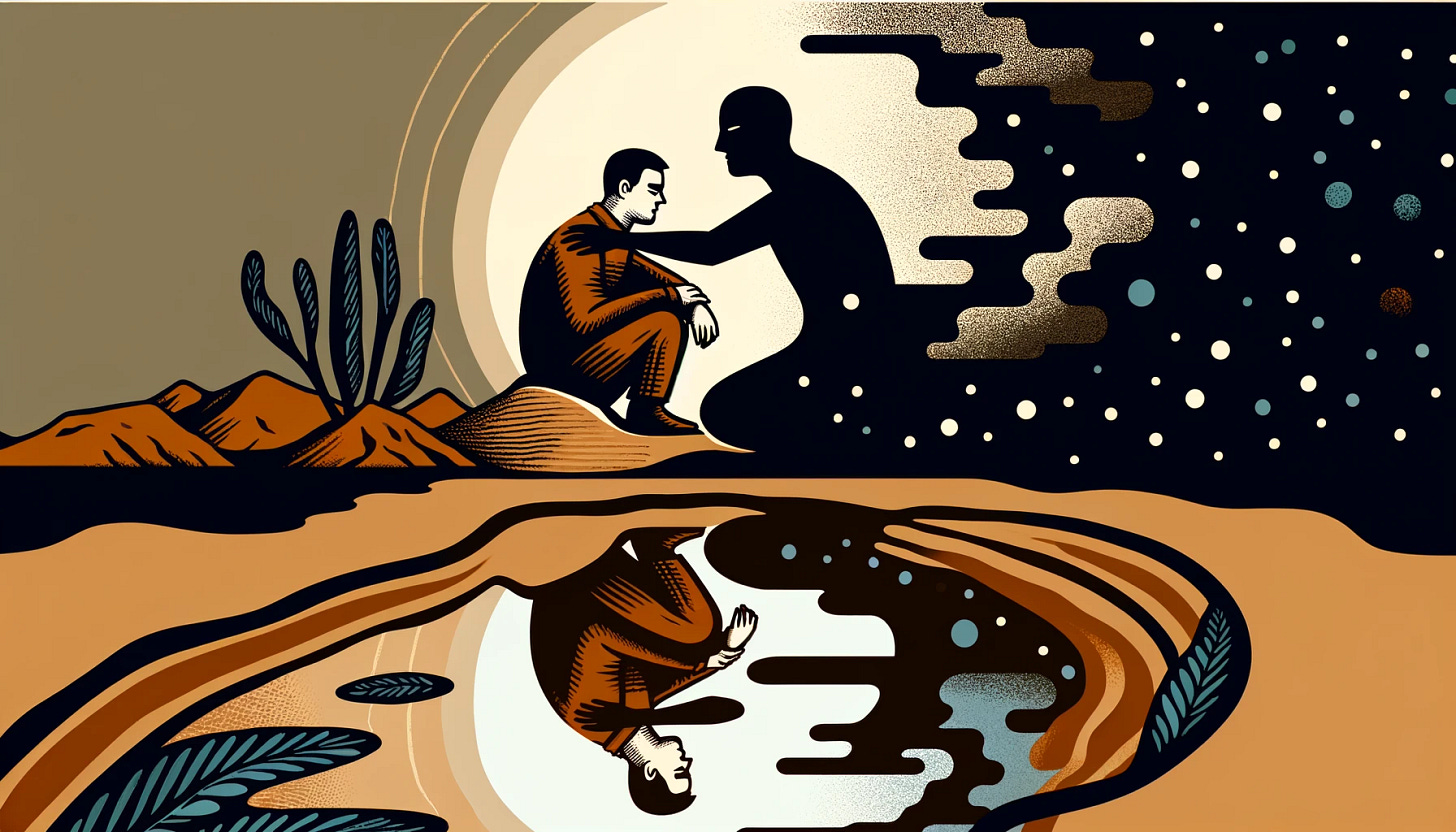


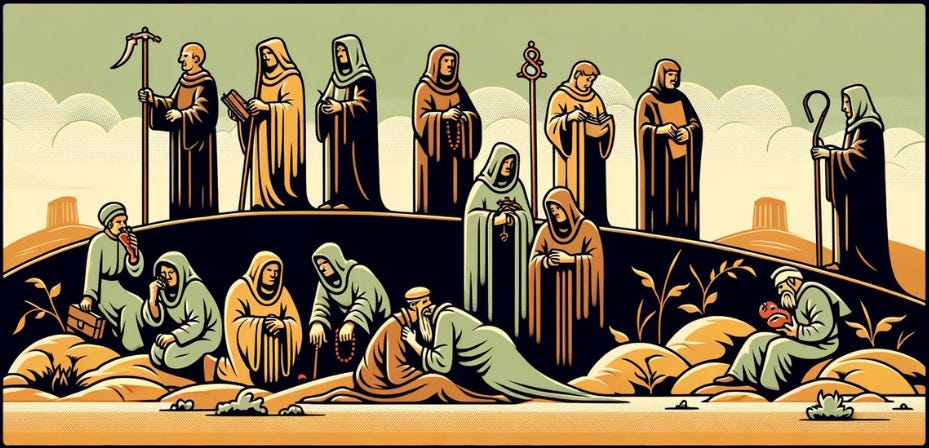
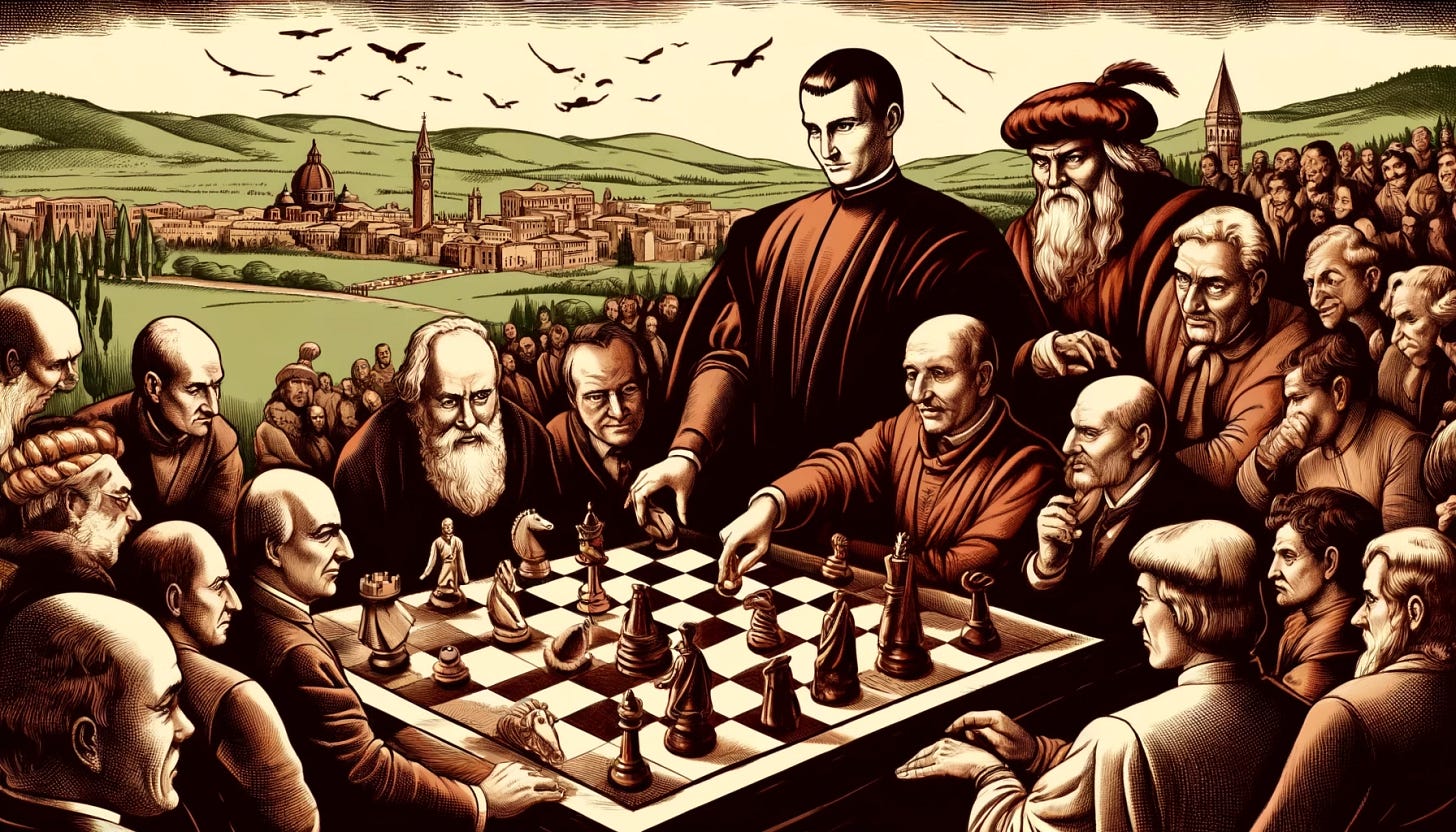
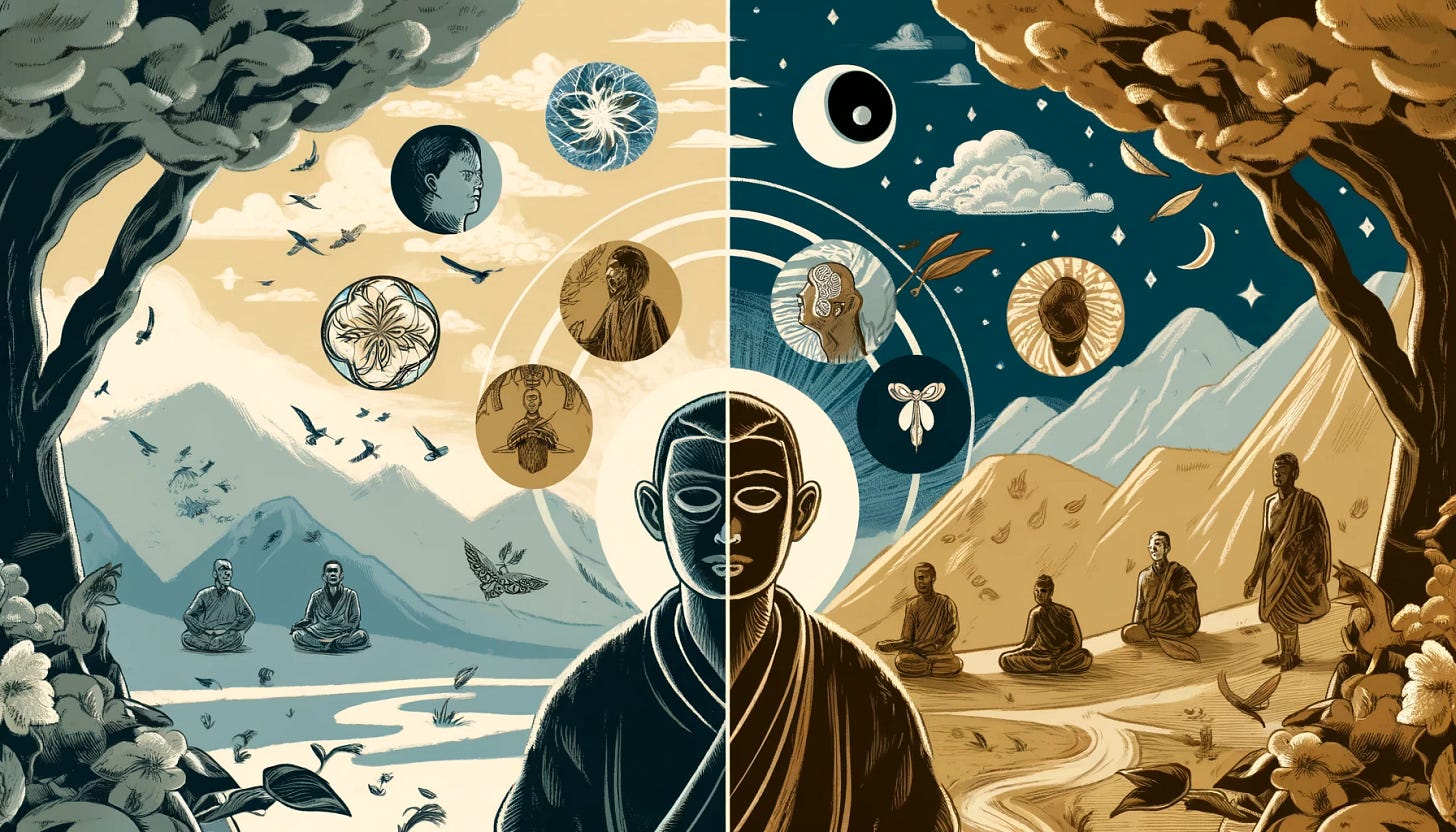

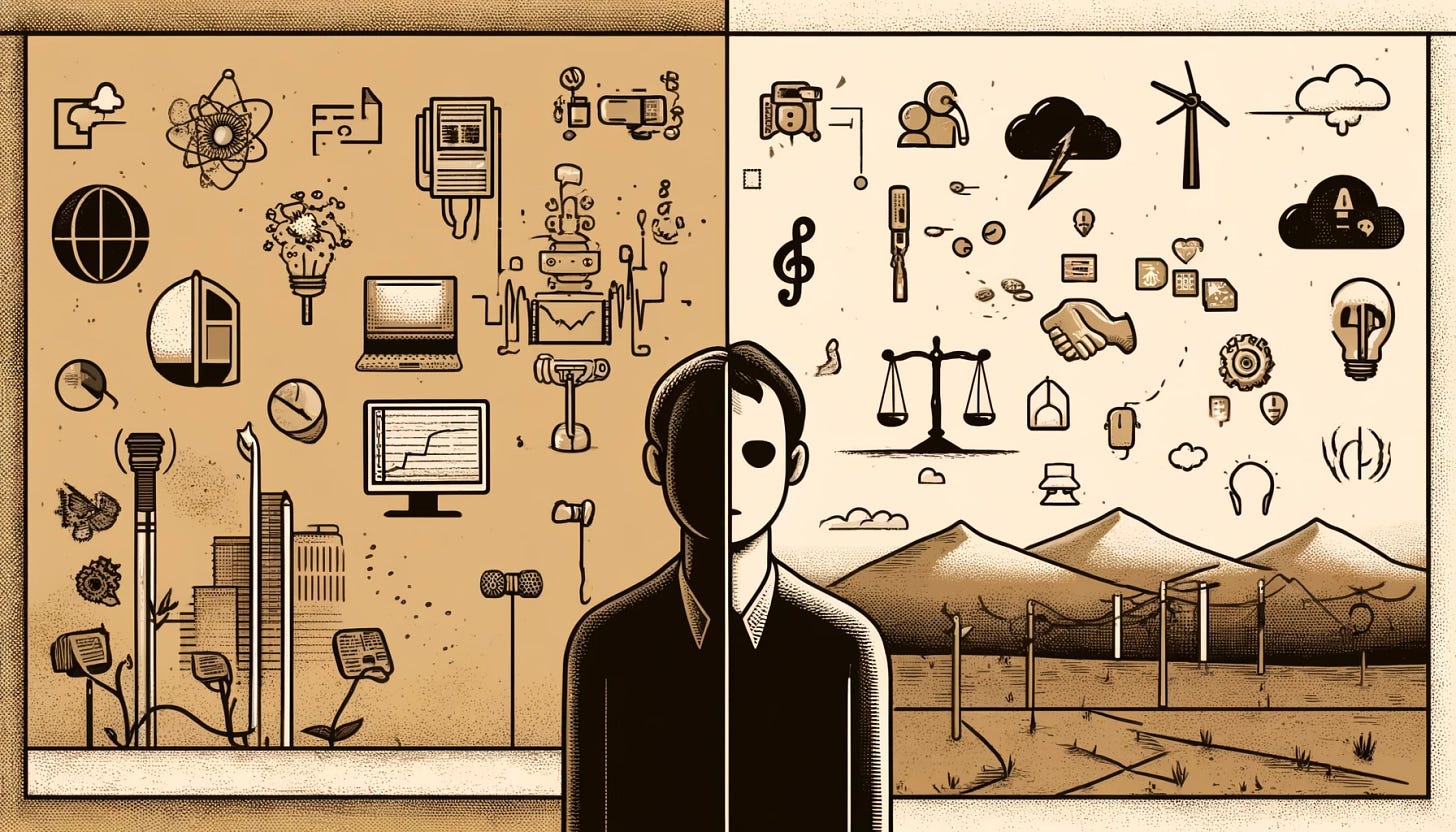
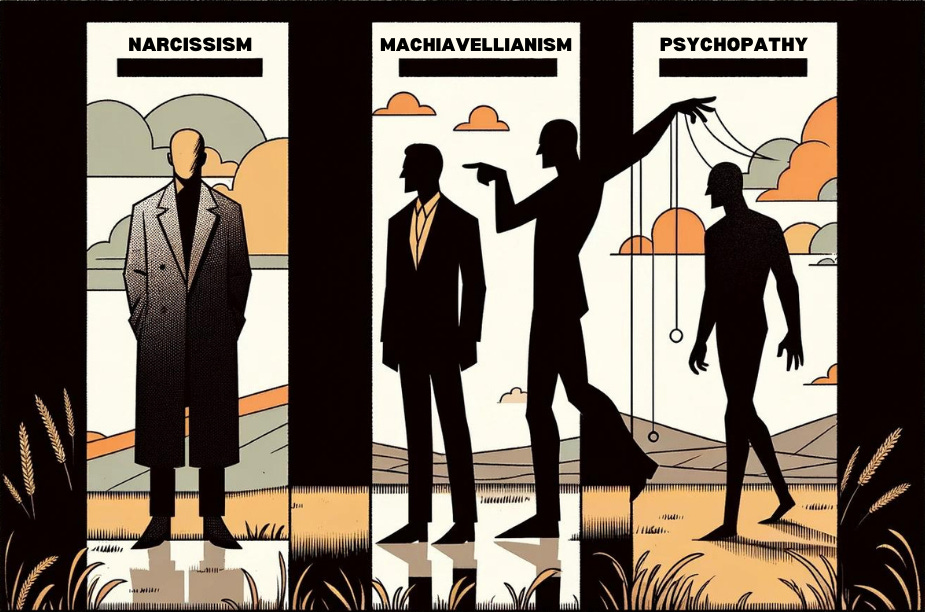
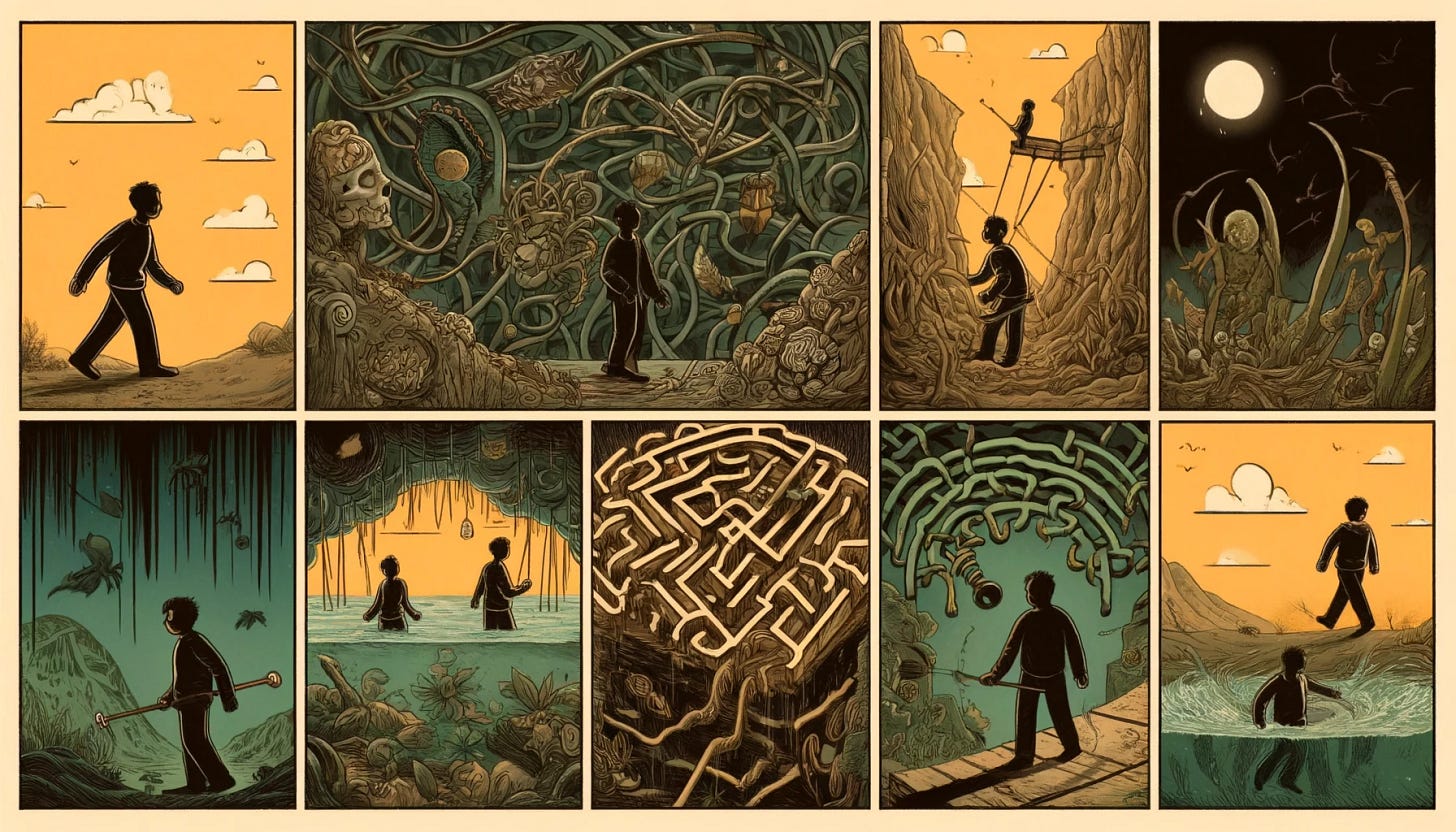




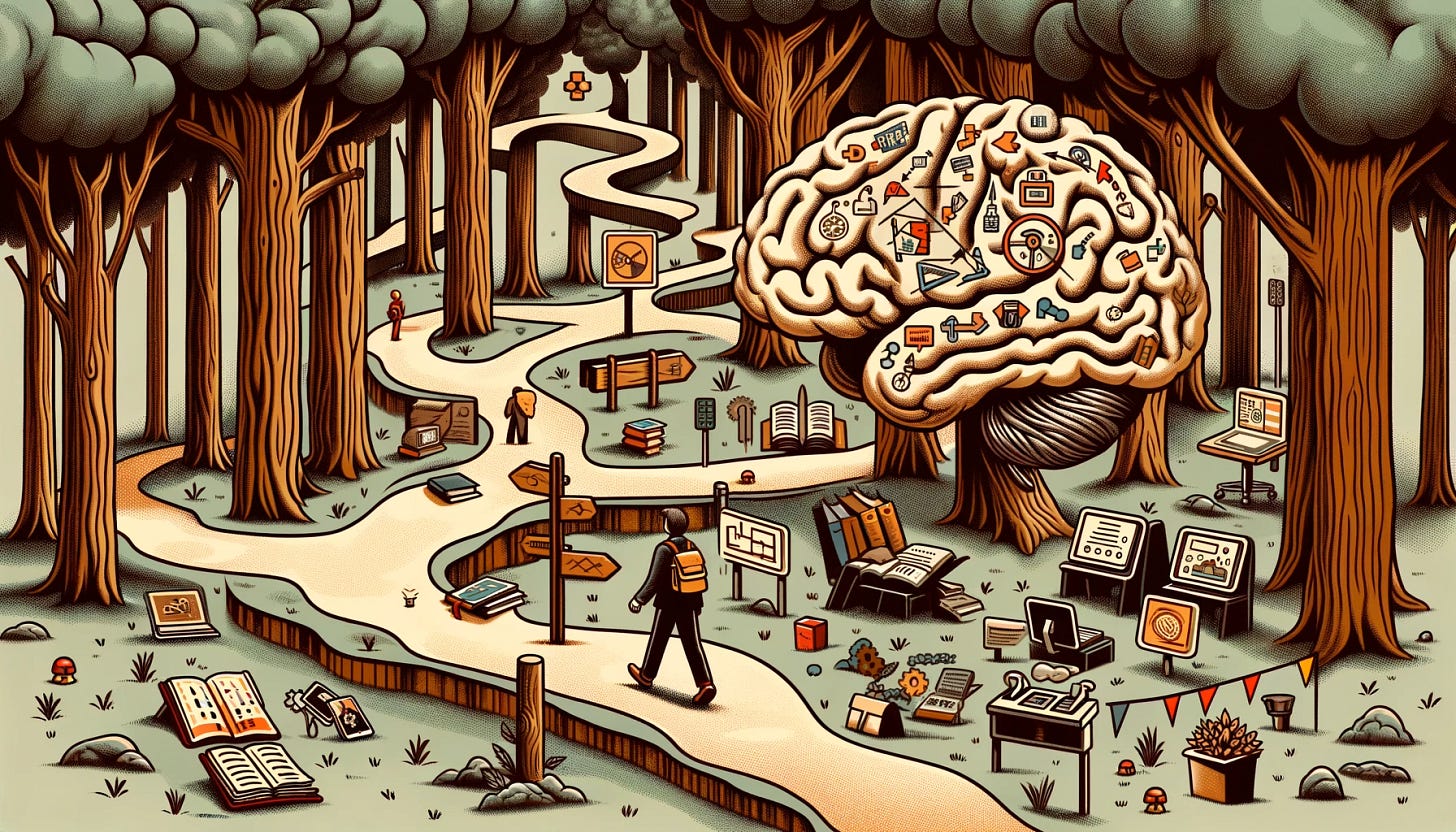



Chusana, love your take on dark psychology. People think that one might study it to become better at the dark triad, but actually it is meant to better understand and improve ourselves as well as not fall into the trap of people taking advantage on us. I am very much on the same page here. Greetings from Vilniuis.
Amazing aesthetics and amazing post!